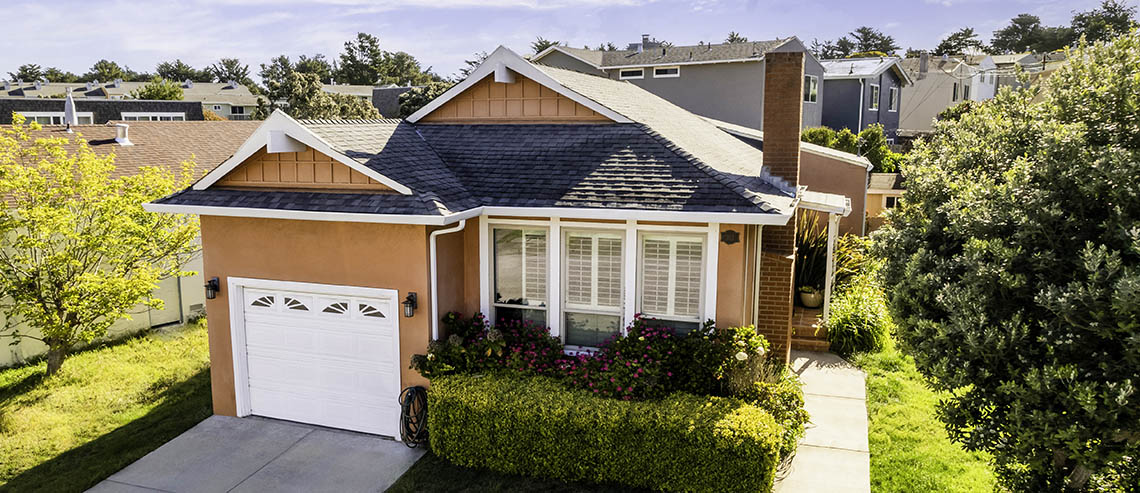
Earn cash back
after close!
With Home Connect, you could earn $350 to $9,500 cash back after close.
Have you been inspired by all the investment property TV shows out there? Or have you seen friends or family find success in real estate? If so, you may be intrigued by the prospect of investing in a rental property. But figuring out how to get started can be intimidating. From financing to knowing what kind of property to buy, the investment process has many steps. Here are some tips on how to buy the rental property that’s right for you.
How to Buy a Rental Property
Real estate investing can be lucrative, but as with any investment, you need to plan wisely. Before we dive into more details, here’s an overview of the process:
- Prepare financially: Save for your down payment if you’re getting a mortgage, and get pre-approved if possible. Be sure to budget for other contractors or team members, which you should outline in your investment plan.
- Select the right location for your property: Consider the local benefits of a neighborhood, such as amenities, schools, shopping, general safety, transportation, etc. The more the area has to offer, the more desirable and profitable your rental will be.
- Consider the market and rental property returns: Do your research on the rent pricing in the area you're interested in. Be sure you understand how those prices will affect your financial plan.
- Find a property: Look for the type of property you want, the fixer-upper versus turnkey, and the property taxes that home will likely cost you. New investors usually avoid fixer-uppers if they’re new to managing rental properties.
- Track income and expenses: Once you have a rental property, you’ll need to keep your eye on:
- Rental income
- Security deposits
- Month-to-month fees like utilities, landscape or property management fees, insurance, homeowners association (HOA) fees, leasing fees and more
- Occupancy and your ability to make payments in full even if the property is vacant
Decide if You Have the Ability and Funds To Be a Landlord
Being a landlord can be rewarding and profitable, but there are useful (and sometimes necessary) abilities you need. For example, it’s helpful to know how to take care of basic household problems, like patching a hole in the wall or unclogging a toilet. Otherwise, you may need to hire a property manager.
It can be valuable to establish a team of go-to experts before problems arise, including:
- A skilled handyman
- A heating and air conditioning specialist
- A plumber
- An electrician
- Lawn care professionals
- An advisor to assist with any potential tenant issues
Having a clear picture of the financial commitment involved in real estate investing is also essential. Beyond the initial down payment, there are ongoing expenses you'll want to prepare for to ensure your investment generates positive cash flow. For example:
- Insurance
- Property taxes
- Maintenance costs
- Mortgage payments, even if no tenant is occupying the property
- Utilities
Financing Options
By now, you may be considering all the financial planning this endeavor requires. Unless you have the cash, you will need to look into financing, which also involves a fair amount of upfront costs. There are several loan options available for investment properties. These loans are specifically designed for financing single-family homes, townhomes, condos or multi-unit properties intended to generate income through rental or resale.
- Conventional loan
- Down payment: 15% for single-family homes, 25% for 2-4 unit properties
- Good credit and cash reserves are required
- Follows Fannie Mae and Freddie Mac guidelines
- Similar application process to a mortgage on a primary residence, with stricter standards
- Home equity loan
- Allows borrowing against existing home equity
- The value of your home will determine the amount of equity you can access
Decide Whether to Loan or Buy in Cash
Some people can buy a second property with cash, while others opt for other financing. There really isn’t a right or wrong way to approach the purchase. It largely depends on your personal financial situation and the type of property you wish to invest in.
Buying with cash is great for seeing faster positive cash flow, especially for lower-priced properties. However, this also means all your money is tied up in the house.
On the other hand, financing can have a larger return in the long run. It can give you more freedom to get just what you need initially while also having a greater ROI down the road. If you do decide to finance, make sure you choose a trustworthy and experienced investment loan lender.
Determine Which Type of Rental Property You Want to Buy
When you first consider buying an investment property, the number of variables and decisions you need to make can feel overwhelming. The time and money alone can significantly impact your life, so it’s best to learn what different types of properties will require of you. Review these four factors that novice investors must consider to organize and narrow their property choices:
- Location matters: Property location affects the quantity and quality of time you spend dedicated to it. The location also affects the budget you need since some neighborhoods or areas are more financially demanding than others. It may also determine if you can manage it yourself, or if you need to find a property manager.
- Property type and age: The property type will determine how much of the property you’ll manage, the time required, etc. The property’s age also plays a role since older buildings and grounds will demand more time.
For example, if you own a condo, the condo association will handle much of the building and ground maintenance. You’ll have more to manage with a single-family home or a multi-family residence, especially if it's an older property. - Fixer-upper vs. ready-to-lease: Depending on your skills and the time you can commit, flipping a fixer-upper property can be a profitable investment. However, such properties aren’t without disadvantages and potential risks, so many new investors prefer to go with a ready-to-lease rental.
- Equity growth vs. cash flow: Your property goals may also vary depending on whether you're trying to build value or generate greater cash flow. This will influence the property you should invest in and how you spend your money.
Some properties and neighborhoods may not be poised for significant property value increases, but you may be able to generate good cash flow. Other properties might be vice versa.
Legal and Regulatory Considerations
Owning real estate involves understanding and complying with various financial and legal requirements, such as:
Legal compliance:
- Lead paint inspections
- Rental registration
- Written leases
- Fair Housing laws
Financial obligations:
- Property taxes
- Insurance (liability and renters)
- Accounting and record-keeping
Tenant management:
- Tenant screening (criminal and credit checks)
- Property maintenance
- Rent collection
Property Management
Deciding between self-managing or hiring a property manager is a significant consideration for real estate investors.
Self-management is a great option for hands-on investors with time, local knowledge and a desire for control, but living near the property is essential. If you lack experience and time or live far away, budgeting for a property manager is recommended even before purchasing your first property. They can offer valuable insights during the buying process and seamlessly take over operations after closing.
Some tasks a property manager can handle include:
- Marketing and advertising vacancies
- Screening and selecting tenants
- Collecting rent and managing finances
- Taking care of maintenance and repair requests
- Dealing with tenant concerns and disputes
- Ensuring legal compliance
While some investors may start with self-management, seeking professional help is wise if your investments suffer due to inexperience or time constraints.
Analyze Your Rental Property Investments
Once your rental is up and running, you must track and analyze its financial performance. Examining these key metrics with the help of an accountant, financial advisor or real estate professional can help you make informed decisions about rental rates, refinancing and more. An investment property can provide a reliable stream of income now, plus it can supplement your retirement savings and leave a lasting financial legacy for your loved ones, so it’s important to understand the health of your investment.
Return on investment (ROI): This measures the profitability of your investment by comparing the net profit to the initial investment cost. A higher ROI indicates a more lucrative investment.
Cash flow: This refers to the amount of money left over after deducting all operating expenses (mortgage payments, property taxes, insurance, maintenance, etc.) from your rental income. Positive cash flow means you're earning more than you're spending, while negative cash flow signifies a loss.
Capitalization rate (Cap Rate): This is a measure of a property's potential return on investment, calculated by dividing the net operating income (NOI) by the property's current market value. A higher cap rate suggests a potentially more profitable investment.
Gross rental yield: This is the annual rental income divided by the property's value, expressed as a percentage. It provides a simple overview of the income generated by the property before expenses are deducted.
Rental income reporting on tax returns: Keep in mind that how you report your rental income on your tax returns can impact you down the road. Declaring a loss could affect your eligibility to qualify for a mortgage on a new primary residence in the future.
Planning for Your Rental Property Investment
Buying income property can be one of the best financial decisions you make, but it can also be one of the worst. The difference is in the amount of time and effort you put into your research, connecting with the right team and developing a strong (yet flexible) long-term plan. Want to begin building your rental property investment portfolio? We can help. Talk to a Pennymac Loan Expert to explore your financing options.
Share
Categories


Meet Our Contributing Editors
Bradley Thompson and Afton Lambert are Contributing Editors for Pennymac’s consumer content and are exemplary leaders within the mortgage industry space. Both experts take pride in helping our customers achieve and sustain their aspirations of home.
For over 13 years, Bradley has achieved success as a high performer in various leadership roles including consumer direct sales and mortgage fulfillment positions.
With over 10 years of mortgage experience, Afton started her career as a top performing Loan Officer, before transitioning into her leadership role, where she has recruited, hired and trained Loan Officers.





